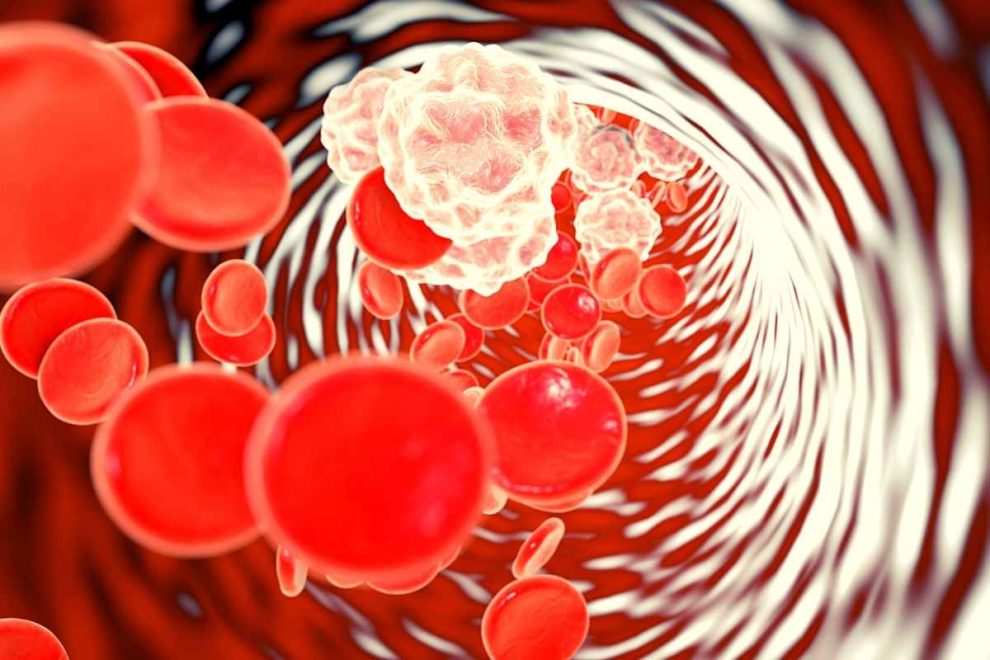Our body can fight infections on its own, and the body’s defense system is known as the immune system. These infections and pathogens can be viruses, bacteria, fungi, parasites, etc., and the immune system fights against them to protect our body.
This article is a perfect read for those who want to learn about the immune system.
1. Blood plays a crucial role in the immune system
There are three types of blood cells: red blood cells, white blood cells, and platelets. Red blood cells carry oxygen to the body’s tissues and organs. White blood cells fight infection and help to heal wounds. Platelets help to clot the blood and stop bleeding.
The most important blood cells for immunity are the white blood cells responsible for attacking and destroying bacteria and viruses.
The process of generating white blood cells occurs in the bone marrow, where stem cells develop into different types of white blood cells under the influence of a special substance called colony-stimulating factor (CSF).
Once the stem cells become mature white blood cells, they circulate through the bloodstream until they reach sites of inflammation or infection. The white blood cells engulf invading pathogens and destroy them at these sites.
If you’ve ever had chickenpox, you may remember being sick for weeks at a time. Your body was trying to fight off the virus; the only cure was rest and plenty of fluids. But during this time, your immune system worked overtime, making tons of white blood cells to keep you safe.

Credit: www.cancer.gov
2. Sleep deprivation weakens your immune system
There are numerous scientific explanations for how lack of sleep weakens the immune system.
The first reason is that when we sleep, our body produces more cytokines, which are proteins that fight infection and inflammation. Cytokines help to regulate our immune system and keep us healthy. Without enough sleep, our bodies produce fewer cytokines and are more susceptible to illness.
Another reason why sleep is important for immunity is that it helps our cells regenerate and repair themselves. Lack of sleep makes our cells more prone to bacterial or viral infection and disease since they do not have enough time to repair themselves.
Finally, sleep deprivation can lead to stress, weakening the immune system. Our immune system is suppressed by cortisol, a hormone produced by stress.

Credit: www.science.org
3. Gut bacteria influence immune health
Almost all microbes in the human body reside in the gut, which plays a crucial role in maintaining a healthy immune system. Several benefits are gained from these beneficial bacteria.
The first benefit is preventing pathogens from adhering to mucous membranes and multiplying and destroying harmful microbes.
In addition, they aid in the absorption of calcium, iron, and magnesium, which are essential for the body, and in the production of several vitamins, such as vitamins B and K.
Through proper digestion, they replenish our vitamin and mineral stores, facilitate cellular metabolism, and use trace elements effectively.
Symptoms of a weak immune system can also be associated with damage to gut flora. We will constantly feel tired and weak, and our rest at night will be inadequate.
4. Immunity is weakened by stress
Cortisol, a steroid hormone released by stress, can negatively impact the immune system. When stressed, the adrenal gland releases the stress hormone cortisol. Cortisol has been shown to suppress the immune system, making individuals more susceptible to infections and illnesses.
While some stress may be beneficial in small doses, chronic stress can negatively affect health. When the body is constantly under pressure, it can lead to higher levels of cortisol in the blood. It can weaken the immune system and make individuals more prone to illness.
There are several ways to manage stress to keep cortisol levels under control. A healthy lifestyle, exercise, relaxation techniques, and a relaxed mindset can all help to reduce stress and keep cortisol levels in check.

Credit: courses.lumenlearning.com
5. Different types of immunity exist
Immunity can be divided into two types: innate immunity and adaptive immunity.
Innate immunity is the immunity you are born with, and adaptive immunity is the immunity you acquire during your lifetime.
Innate immunity is your body’s first line of defense against infection. It includes physical barriers like your skin and mucous membranes and chemical barriers like enzymes and antibodies.
Adaptive immunity is your body’s second line of defense against infection. It is specific to a particular pathogen and develops over time.
There are two main types of adaptive immunity: humoral immunity and cell-mediated immunity.
Humoral immunity is mediated by antibodies. Specific pathogens are recognized and bound by antibodies. They neutralize the pathogen and help to remove it from your body.
Cell-mediated immunity is mediated by T cells. Infected cells are recognized and destroyed by T cells, which are white blood cells.
Both innate and adaptive immunity are important for protecting your body against infection.
6. What are antibodies?
Whenever the body comes into contact with foreign substances, such as bacteria or viruses, it produces antibodies. They help to protect the body by binding to these foreign substances and neutralizing them. Antibodies are produced by a type of white blood cell called B lymphocytes. In response to a foreign substance entering the body, the B lymphocytes begin to produce antibodies. The antibodies then circulate in the blood and body fluids, binding to the foreign substance and neutralizing it.

Credit: www.iavi.org
7. The body’s first line of defense: skin and mucous membranes
The skin serves as the body’s first line of defense against infection, forming a physical barrier to keep harmful microbes out. The skin is also home to beneficial microbes that help balance the body’s internal environment.
Mucous membranes, which line the body’s internal surfaces, also play an important role in protecting the body from infection. Mucous membranes produce mucus, which traps harmful microbes and prevents them from entering the body.
Both skin and mucous membranes are constantly shedding microbes and debris, which helps to keep the body’s surfaces clean and free of infection.
8. The second line of defense: inflammation
Inflammation is the second line of immune defense and is a crucial part of the body’s healing process. When the body is injured or infested by a foreign substance, inflammation helps to protect the body by destroying the foreign substance and promoting the healing of the damaged tissue. Inflammation can be a response to both physical and emotional stressors. While acute inflammation is a normal and necessary response to injury or illness, chronic inflammation can lead to many health problems.
9. The third line of defense: white blood cells
White blood cells, or leukocytes, are the third line of defense against infection. These immune cells are produced in the bone marrow and circulate in the blood. White blood cells are divided into several types, each with a distinct function.
One type of white blood cell, called a neutrophil, engulfs and kills bacteria. Another type, called a lymphocyte, produces antibodies that attach to bacteria and viruses, marking them for destruction. Still, another type of white blood cell called macrophage eats bacteria and viruses.
The white blood cells are constantly on the lookout for foreign invaders. When they find one, they engulf and destroy it. If a white blood cell is unable to destroy an invader, it alerts the other cells of the immune system to come and help.

Credit: my.clevelandclinic.org
10. Sterilizing too much can weaken the immune system
You are at risk of developing a weakened immune system if your environment is overly sterile. When we are constantly exposed to bacteria, viruses, and other microorganisms, our bodies build up immunity to them. However, if we live in a sterile environment, our bodies never get the opportunity to build up that immunity, and as a result, we become more susceptible to infection.
There are some ways to reduce the risk of infection, but over-sterilizing our surroundings is not the answer. Instead, we must strike a balance between protecting ourselves from potentially harmful microorganisms and allowing our bodies to come into contact with a variety of them so that our immune system can develop properly.
11. Fever indicates a healthy immune system
A fever is a common infection symptom and usually indicates that the body is fighting off an invasion of bacteria or viruses. A fever is caused by the release of inflammatory cytokines into the bloodstream, which in turn triggers the body’s thermostat to reset at a higher temperature. This increased temperature makes it harder for bacteria and viruses to survive and proliferate. In other words, a fever is a sign that the immune system is working correctly.
Fever is usually not a cause for concern unless it is accompanied by other symptoms such as severe headaches, rashes, or breathing difficulties. If you are worried about your fever, please consult your healthcare provider.

Credit: share.baptisthealth.com
12. Sunlight improves your immune system
Vitamin D is known to have a positive effect on the immune system. This vitamin helps the body fight off infection and disease by stimulating the production of white blood cells. Vitamin D also facilitates proper immune function by regulating the immune system.
In order to obtain vitamin D, you can do a number of things. One way is to expose your skin to sunlight. Your body will produce vitamin D when your skin is exposed to sunlight. Another way to get vitamin D is to consume foods that are rich in vitamin D. Fatty fish, eggs, and fortified milk are all good sources of vitamin D. You can also take vitamin D supplements to ensure that you get enough of this essential nutrient.
To sum up
It’s no secret that our immune system is incredibly important in protecting our bodies from various pathogens and microorganisms. If it weren’t for the immune system, we would be at risk of getting sick all of the time. There is no denying that our immune system fights for us constantly, but some things can affect it. Our goal is to better understand your immune system and how it works, so you can take better care of it in the future.









